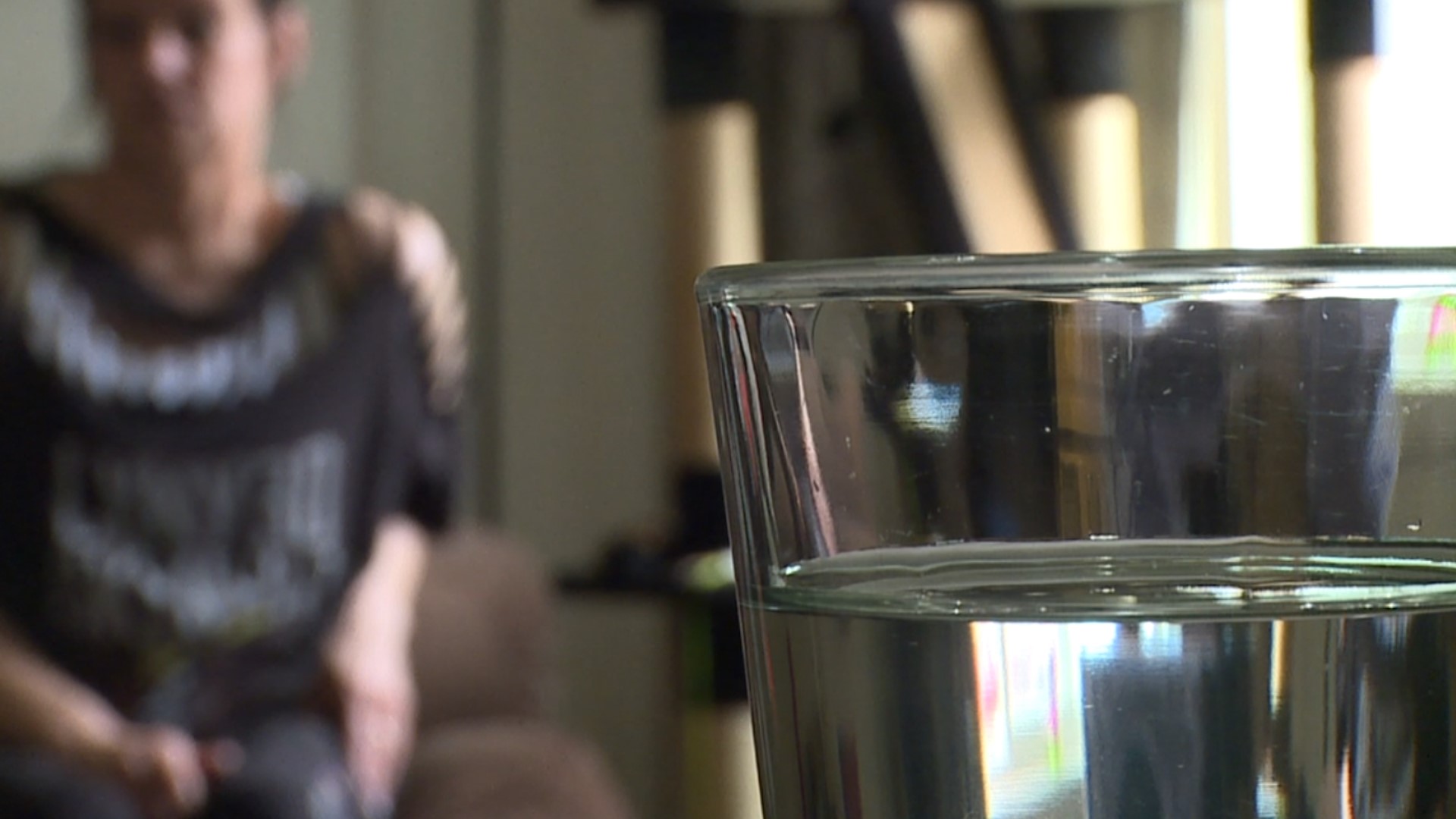PORT BYRON, Ill. — The Village of Port Byron is ramping up its water testing to once-per-week after the state found higher-than-normal levels of manganese in the town wells, but residents are concerned over brown sediment that they say has been in the water for years.
State standards allow for 0.15 milligrams of manganese per liter of water. According to village leaders, Port Byron was alerted of the manganese issue in December 2021 after the wells began testing positive for levels between 0.18 and 0.20 milligrams.
Manganese is a naturally occurring mineral that's harmless in small quantities. However the Illinois EPA warns that prolonged exposure, especially in children, can affect one's nervous system, memory and motor skills. It can also stain plumbing and laundry and may produce an unpleasant taste when used in cooking or beverages such as coffee or tea.
At this time, Port Byron Mayor Barbara Cray says there is no health risk to residents.
"We are addressing it. We do know it's a problem. We don't feel that it's a health hazard at this moment for the people," Cray told News 8. "But we have an engineering firm that we hired and they're looking into what we can do."
She also said the village will now begin testing the water once a week. Previously, Port Byron had been testing four times a year.
According to the mayor, just under 500 residents use city water.
But one of those residents says her water has had issues for years.
Angela Yusko moved to Port Byron four and a half years ago. Almost immediately, she began to notice a sediment-like brown substance in her water.
"I noticed it first in the toilet because it starts to stay in the toilet bowl. And then around the bathtub drain, you can see it sets up in the bottom of the tub because there's like a texture to the tub and it sits in those creases," Yusko said.
When News 8 met Yusko, she had recently cleaned her bathroom, yet there were still slight pools of a light brown substance at the base of both her toilet and bathtub.
"The tap water, if you boil it, it leaves a film around your pan and it's like it flakes off and looks like scum," Yusko said. "If you get a glass of tap water and let it sit for like a day or two you'll see the brown sediment sitting in the bottom of it."
She also pointed out issues with her water heater. Once a month, Yusko drains the tank and watches as the first few seconds of water spew out in a murky black color.
"I was using the tap water in my coffee and there was always a little bit of a funny taste," she said. "It has kind of that rotten egg smell to it. So you get a little bit of that in the taste."
Yusko says her daughter and brother also live in Port Byron and have had similar experiences. When her brother bought a filter for his sink, she said it helped for a little bit but then needed to be replaced after only three months.
"They're supposed to last six months or longer but I don't have the money to keep buying new filters every three months," she said.
Now, Yusko uses bottled water for all of her drinking and cooking.
"I will not drink that tap water. I wouldn't even give it to my animal," she said. "It's scary because you think we're in America, we've got clean, good drinking water."
While Yusko and her family can't prove that the buildup is caused by manganese, she says her trust in the water is gone.
And after the state announced it was suing the nearby 3M plant for allegedly dumping chemical contaminants into the Mississippi River, she says it's all the more reason for her to stick to bottled water.
"I want answers. I want to know what this is," said Yusko. "Something needs to be done and they need to get to the bottom of it."
The village told News 8 it has hired an engineering firm to look into the issue and they expect some solutions to be presented during its next town meeting on April 18.

